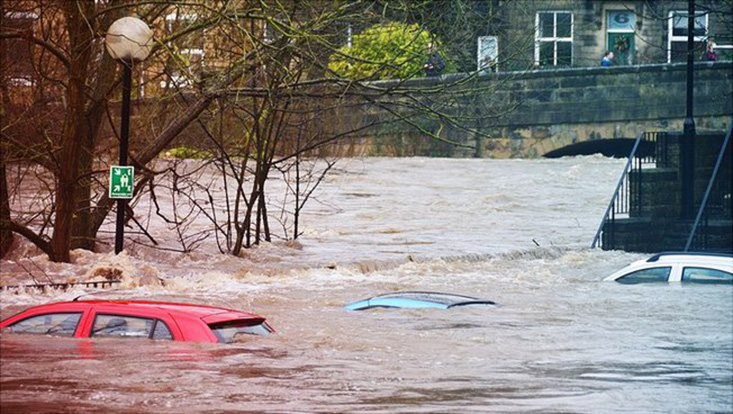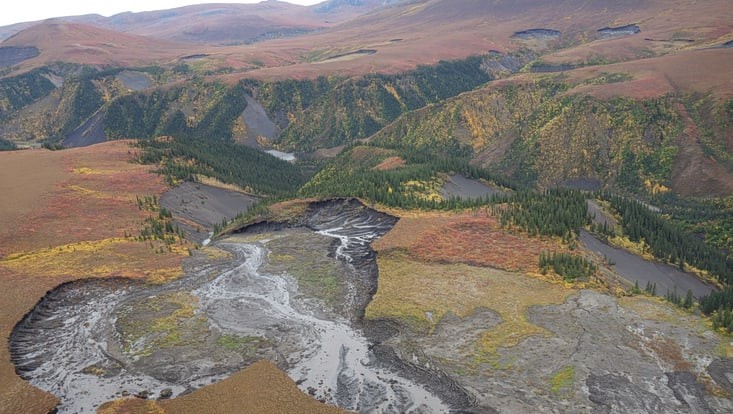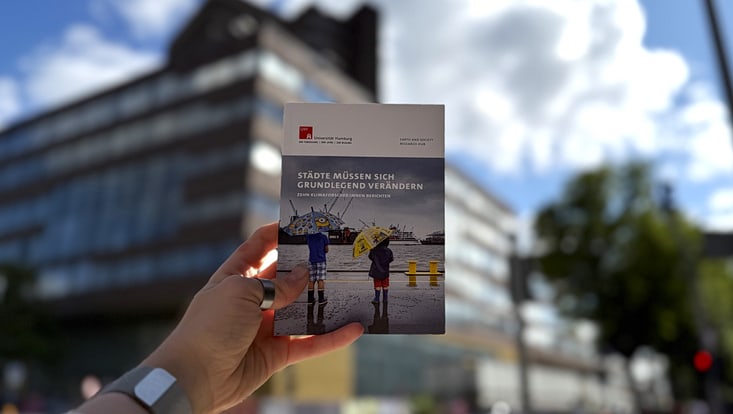How high could the sea level rise?
11 July 2019, by CEN Universität Hamburg

Photo: Chris Gallagher/Unsplash
The research project “SeaLevel” recently received approval for a second phase of funding, amounting to six million euros, which it will use to improve the accuracy of regional forecasting for future sea-level changes and their consequences for local populaces. The decision was recently announced by the German Research Foundation (DFG). At the same time, SeaLevel Coordinator Professor Detlef Stammer from Universität Hamburg’s Center for Earth System Research and Sustainability (CEN) unveiled a new study that offers a sound concept for calculating maximum sea-level rise.
In a recent article in the journal Earth’s Future, an international team led by Detlef Stammer shows how reliable information on maximum sea-level rise (“high-end sea-level rise”) can be provided in future. “The new concept will allow us to dispel a number of misunderstandings on the topic, which can also be found in the professional literature, and arrive at reliable conclusions,” Stammer says. For the first time, major physical processes like the melting of inland ice in Greenland and Antarctica, together with their corresponding uncertainties, will be integrated into the calculations.
Until recently, these parameters were calculated in several different ways, varying from country to country, or were used in connection with different questions – making it impossible to compare them. For example, the IPCC’s Assessment Reports only provide a likely range of values for sea-level rise, not a concrete maximum value.
Because the sea level will develop in a variety of ways at the local scale (in a few regions, it could even fall) due to climate change, local actors don’t need information on the global mean sea level; they need concrete prognoses on the maximum sea-level rise in their home region. This parameter provides a frame of reference for the highest risk and worst possible damage, as well as the highest possible costs in connection with protective measures.
But the farther into the future we look, the more uncertainty enters the forecast. According to Stammer, “The greatest unknowns are how rapidly the ice sheet in the Antarctic will melt, and what quantities of greenhouse gases we human beings will continue to produce.” Consequently, the new concept can easily be adjusted for different timescales. “The West Antarctic Ice Sheet won’t completely disappear anytime in the next 50 years; it simply isn’t physically possible in that timeframe. But it is possible in 100 years, at least theoretically. Accordingly, this risk has to be included in the calculations for maximum sea-level rise.”
In the Priority Program “SeaLevel,” part of these calculations will be completed. In the next step, the focus will be e.g. on quantifying the ice masses in Greenland and the Antarctic, so as to subsequently arrive at concrete numbers for the maximum sea-level rise in the sample regions selected for the project: Indonesia and Northern Germany. The German Research Foundation has now approved six million euros for the next three years. The “Regional Sea Level Change and Society priority program” (SeaLevel) started in 2015 and received six million euros for the first phase.
Further Information
Original publication: https://agupubs.onlinelibrary.wiley.com/doi/10.1029/2019EF001163
The second phase of the Priority Program “SeaLevel,” Regional Sea Level Change and Society, was recently approved for funding by the German Research Foundation and began in July 2019.
Info on the Priority Program SeaLevel: https://www.spp-sealevel.de/index.php?id=3130
Contact:
Prof. Dr. Detlef Stammer
CEN – Center for Earth System Research and Sustainability
CLICCS – Cluster of Excellence “Climate, Climatic Change, and Society”
Tel.: +49 40 42838-5052
detlef.stammer"AT"uni-hamburg.de
Stephanie Janssen
CEN – Center for Earth System Research and Sustainability
CLICCS – Cluster of Excellence “Climate, Climatic Change, and Society”
Public Relations / Outreach
Tel.: +49 40 42838-7596
stephanie.janssen@uni-hamburg.de(stephanie.janssen"AT"uni-hamburg)


